
If You Think You Know What You Look Like Then You’re Probably Wrong, Scientist Claims
Ever feel like there’s a stranger staring at you from your own body? Not to be confused with Dissociative Identity Disorder or the tagline of Nicolas Cage’s ‘Face/Off’, there’s a more entertaining answer for those who can’t shake the feeling that their selfies are full of lookalike strangers.
According to Professor Nicholas Epley, a professor of behavioral science at the University of Chicago Booth School of Business and the author of ‘Mirror, Mirror on the Wall: Enhancement in Self-Recognition’ study published in 2008, the way we perceive ourselves in our mind is not actually how we look in reality.
Research has found that the way we perceive ourselves in our mind is not actually how we look in reality
Image credits: Hoverstock (not the actual photo)
“The interesting thing is that people don’t really know what they look like,” Epley told The Atlantic magazine in 2014. “The image you have of yourself in your mind is not quite the same as what actually exists.”
According to Epley’s study findings, the mental image we hold is significantly more appealing. Meaning that we’re not as hot as we think we are.
In his research, individuals’ faces were adjusted in 10% increments to appear more or less attractive, using features resembling those of conventionally attractive individuals. Participants were then asked to identify their own faces from a set of images.
Perhaps not too surprising (knowing us, humans), most of them chose the more attractive versions of their own faces more rapidly, particularly favoring faces enhanced by 20%.
Image credits: Pavel Danilyuk (not the actual photo)
Interestingly, this preference didn’t extend to identifying the experimenters’ faces in the lineup as participants displayed no inclination for more attractive versions of faces belonging to people they barely knew. On the other hand, the inclination for preference also extends to the faces of our dear friends.
“They’re not wildly off—you don’t think you look like Brad Pitt,” Epley explained. “You’re an expert at your own face, but that doesn’t mean you’re perfect at recognizing it.”
Part of it is due to the “mere-exposure” effect we owe in part to mirrors and the way our brains are wired
Image credits: Nigel Tadyanehondo (not the actual photo)
Image credits: Min An (not the actual photo)
Another reason, which complicates things even further, why humans can’t have a realistic image of their looks is due to the way our brains are wired.
As per the “mere-exposure” hypothesis, individuals tend to develop a preference for what they frequently see and come across. In terms of self-perception, this translates to a favoring of one’s mirror image over one seen in selfies and family pics.
Experiments carried out at the University of Wisconsin, Madison in 1977 backs this concept. When participants were shown both their true image and mirror image in photographs, most preferred their looks in their mirror image, whereas their friends and romantic partners leaned toward their true image.
However, when explaining their choice, participants cited disparities like camera angles, lighting, head tilt and other differences that didn’t actually exist because the photos were made from the same negative.
People shared their takes on this fascinating finding in the comments
My mom was a photography teacher. I spent loooooong hours as a child being her subject- testing different lighting, poses, backdrops and F stops. She taught me things like the object closest to the camera (usually your nose) will appear largest, so gently turn your face to the right. In a group photo, those on the edge appear largest. Etc. Generally speaking, I don’t wear makeup or straighten my frizzy hair or take my own picture, so when I go to an event all dressed up, makeup on, hair done, and hit those poses: I look like a completely different person. And yes, that is the person I imagine myself as, lol!
Meanwhile, my spouse is a pro wedding photographer, and has taken beautiful formal photos of me but he can’t take a candid photo of me I like to save our lives. He approaches any cell phone photo as “unimportant” or “casual” which means he snaps without regard to if I’m talking, blinking, twisted in a weird position or my hair looks like it experienced a small tornado. So 90% of photos of me look horrible and 10% are freaking fantastic 🤷
Load More Replies...So that's why my every selfie is so ugly... it's not the selfie, it's actually me. Ha!
If that's you in your profile photo then you're absolutely gorgeous. I'd kill for your eye shape.
Load More Replies...My mom was a photography teacher. I spent loooooong hours as a child being her subject- testing different lighting, poses, backdrops and F stops. She taught me things like the object closest to the camera (usually your nose) will appear largest, so gently turn your face to the right. In a group photo, those on the edge appear largest. Etc. Generally speaking, I don’t wear makeup or straighten my frizzy hair or take my own picture, so when I go to an event all dressed up, makeup on, hair done, and hit those poses: I look like a completely different person. And yes, that is the person I imagine myself as, lol!
Meanwhile, my spouse is a pro wedding photographer, and has taken beautiful formal photos of me but he can’t take a candid photo of me I like to save our lives. He approaches any cell phone photo as “unimportant” or “casual” which means he snaps without regard to if I’m talking, blinking, twisted in a weird position or my hair looks like it experienced a small tornado. So 90% of photos of me look horrible and 10% are freaking fantastic 🤷
Load More Replies...So that's why my every selfie is so ugly... it's not the selfie, it's actually me. Ha!
If that's you in your profile photo then you're absolutely gorgeous. I'd kill for your eye shape.
Load More Replies...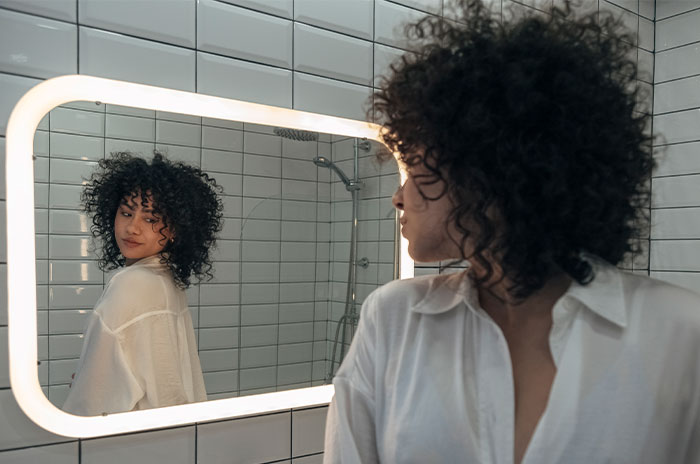
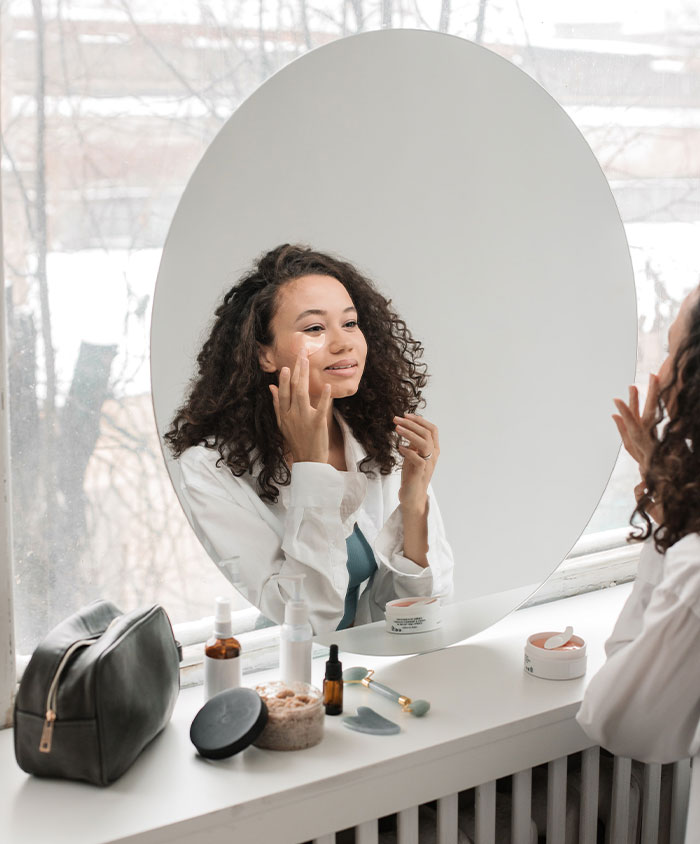

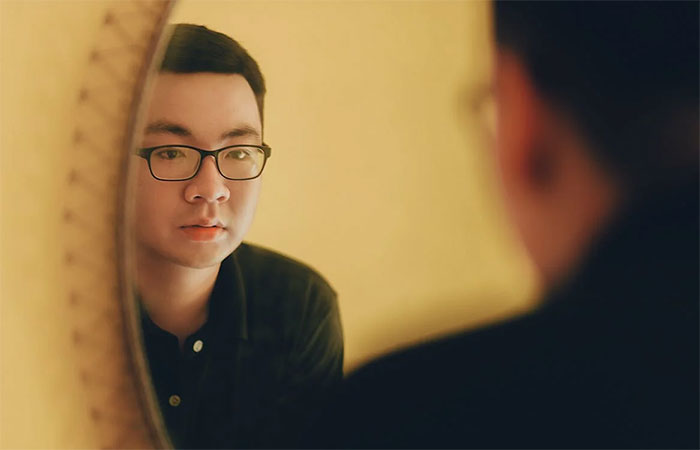
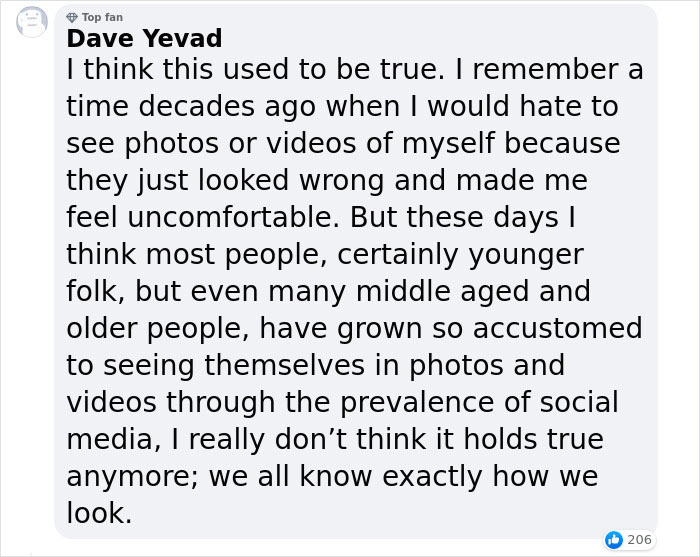

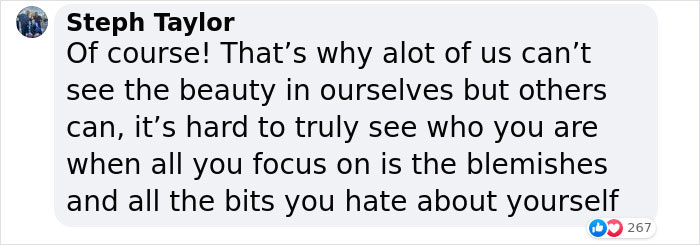


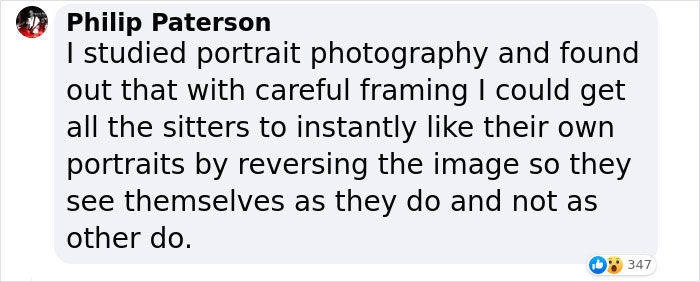





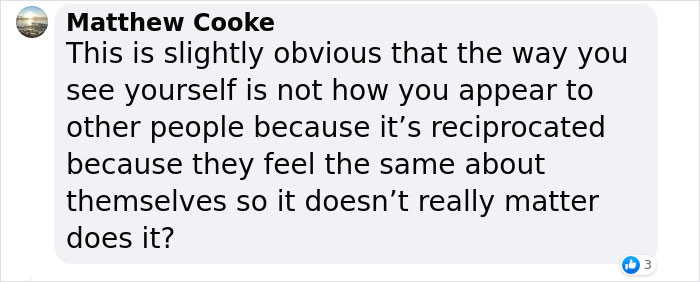
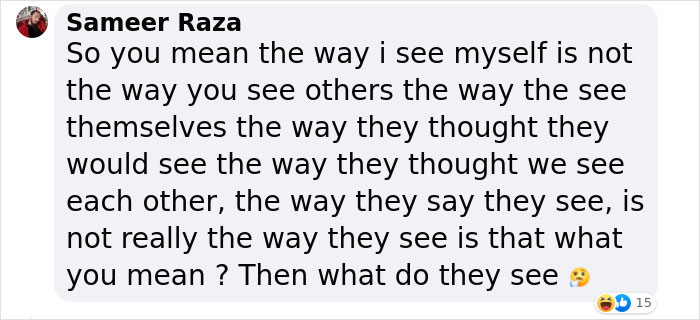

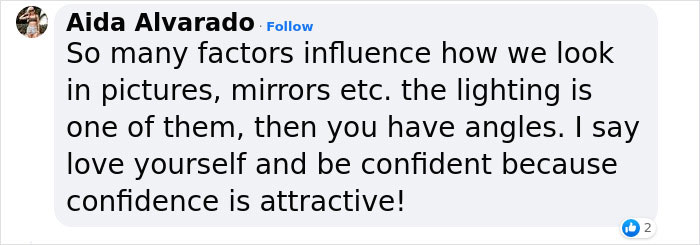




62
25